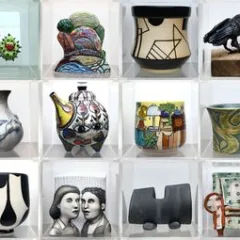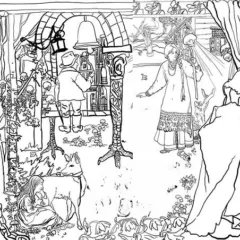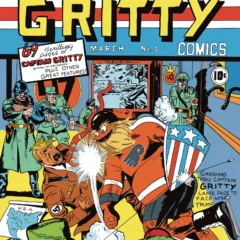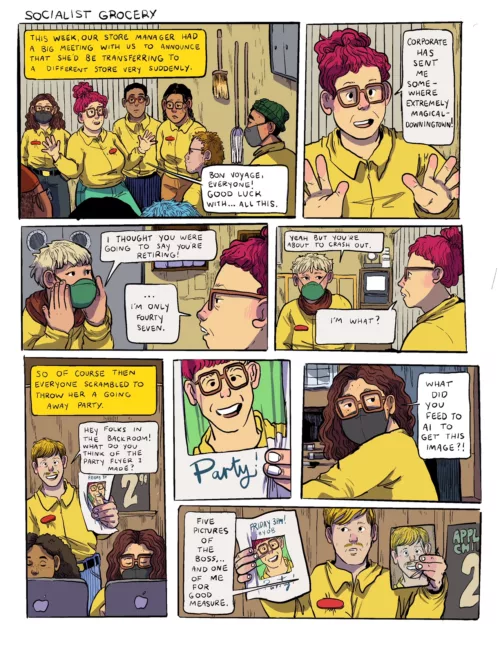The artistic practice of repurposing materials can be intriguing or banal. Works sourced from the trash often look like trash. Things annihilated to their basic elements that are then remade yield what I find to be more interesting results. While Da Vinci Art Alliance’s new group show An Assembled Trace doesn’t utilize outright garbage, it features interesting uses of its pre-owned mediums. The exhibition text mentions the artists using found and repurposed materials “to challenge the landscape of waste and precarity we have in Philadelphia and around the world.” The five artists featured all have their own approaches to keeping artifacts and fragments of items alive
Longtime DVAA member Alden Cole’s color-changing “luminaries” sit in clusters near the front of the gallery. This is the name he’s given to his lamp-esque creations; assemblages of variously thrifted vintage glass and light fixtures. Their kitschiness carries a light-heartedness that’s best seen at night, as their colors change and cast mellow mood-lighting across darkened walls. While the works look clean in their construction, they look repurposed without transformation.
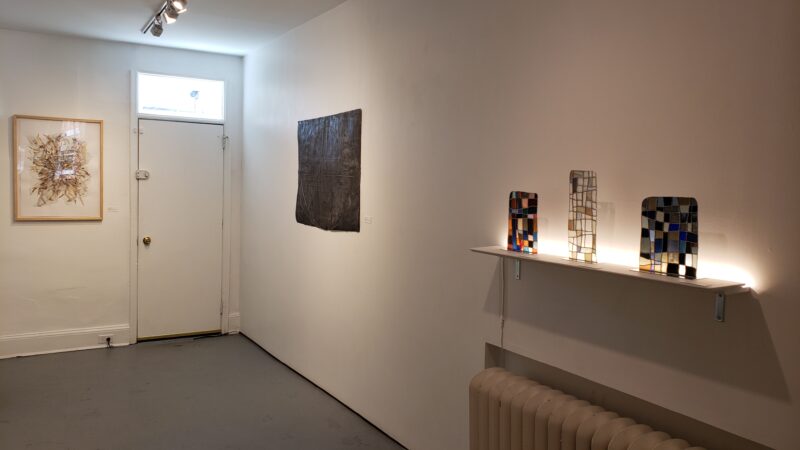
Near the back of the gallery, Ana Mosquera’s concept-centric objects take up a nook with their contemporary sheen of techiness. The flamboyant, hand printed images/patterns on her person-sized, mounted inflatable floater, seemingly made for a body of water, gesture at crypto- and Venezuelan economics in a way I didn’t understand without the press release. A fast-whirring fan is also mounted, replete with a hologram in the middle of it that shows the type of “verified identification” needed for Mosquera’s Breathing Exchange Temporium (B.E.T). This presumably imagined liminal space points to a potential trajectory of capitalism that leads to the privatization of air. Though the exhibition politicizes an eco-consciousness of sustainability through repurposing, this is the only overtly political part of the exhibition, albeit a bit convoluted in communicating so.
Two of Nancy Agati’s pieces span the length of their respective walls. We Are Birch presents bits of unraveled, flattened bark of its titular trees against a black backdrop. The bits of birch are pushed along by a current of wispy white lines that flow like water. Spending a minute with it is like watching a creek carry off natural waste. A little less literal in using its repurposed medium is the gorgeous Nectar II, a vertical triptych. Tendrils of wasp’s nest remnants swirl in, on and away from themselves, gesturing in windswept fashion. The way these large works exist in relation to the elements of air and water enhances their effects.
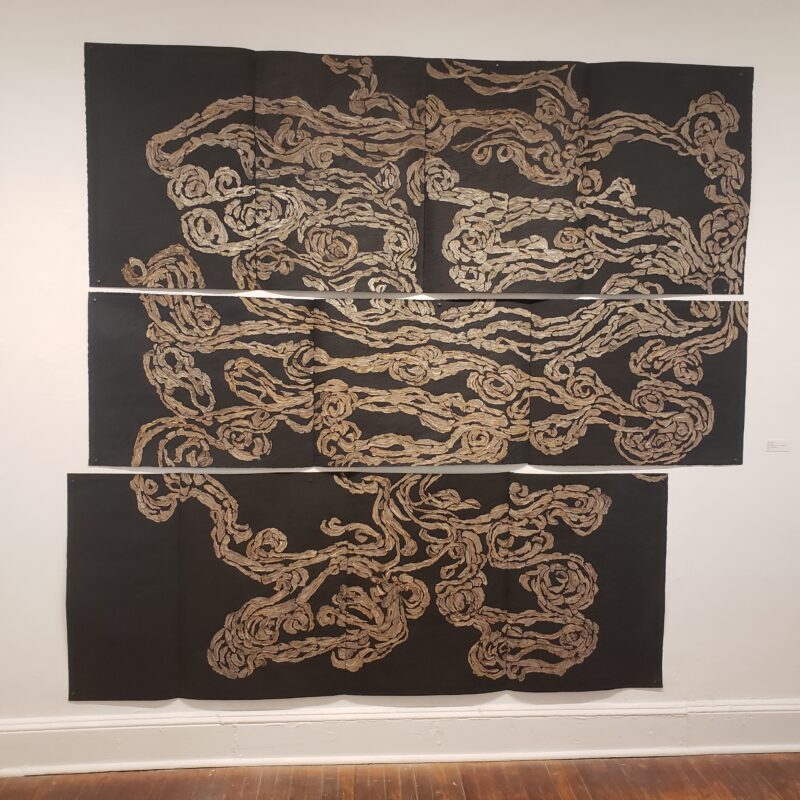
Anna Guarneri’s stained glass series The Stacks sources its colorful designs from leftover glass of regional artists, stores invested in upcycling, and imperfect glass sheets from factories. The small mosaic-like, checkered patterns of her hanging and standing glasswork casts colorful shadows on whatever wall is nearest, depending on the angles of the sun. There’s a quaintness, a soft delight to her art.
Another piece spread, though not laying on, the length of one of the gallery’s walls is Maria Ah Hyun Stracke’s Grow Growing (Mountain Walk II). Its stoney, papier-mache-like quality places viewers on a mountain freckled with green bits of grass. The texture is achieved through a process of smaller paintings being torn up and reassembled with hanji, a handmade Korean mulberry paper. Hanji’s repairing ability encourages recycled processes that save other materials. Like Guarneri’s work, the massive, mounted landscape of muted colors is full of holes that play with light, with the object’s shadows depending on the time of day. My personal favorite of the show is Hyun Stracke’s Untitled. Significantly smaller than her other piece, this graphite study on watercolor paper uses bits of silk with more hanji to form a dubious industrial image. I love the aged, dirty texture of the graphite.
After visiting, I was skeptical about An Assembled Trace‘s theme. Certain things shown in the gallery felt uncreative, procrastinations of an inevitable abandonment, even in their repurposed states. After sitting with my impressions, I think I appreciate more now the way upcycling materials can save time and resources. There could well be a time in the future where people will have to make do with what’s around. This exhibition points towards a conscientious acknowledgement of that fact.
An Assembled Trace is a group exhibition at Da Vinci Art Alliance that ran from March 29-April 23, 2023. Featuring work by Nancy Agati, Alden Cole, Anna Guarneri, Ana Mosquera, and Maria Ah Hyun Stracke. Da Vinci Art Alliance is not wheelchair accessible.


